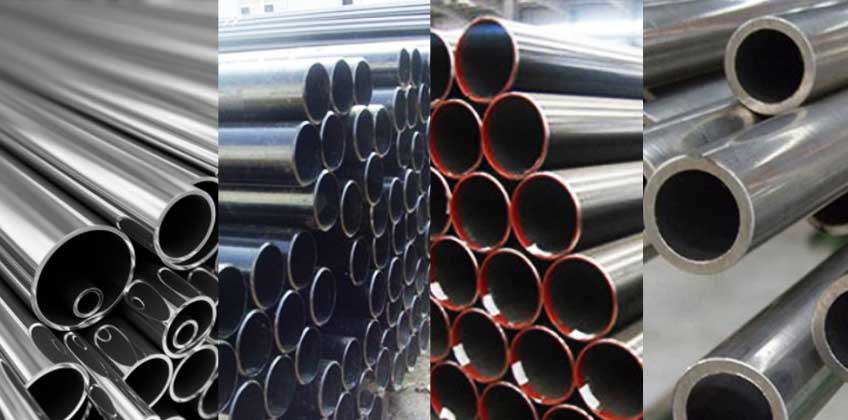Manufacturing processes are greatly evolving and therefore, industries are required to meet the needs of a variety of industries. Different types of steel pipes are available produced according to the specifications and demands of clients, holding certain properties. Steel is an alloy of iron and carbon along with a small percentage of other metals such as nickel, chromium, aluminium, etc. The carbon content is around 0.1 to 1.5 %, but the most widely used grades hold only a minimum percent. Therefore, there arises the need to be enlightened about the types of steel band their uses in the piping industry.
Carbon Steel
A type of steel that is created with a proportion of carbon added to iron, and is generally weak on its own. Because it continues relatively few alloying elements, in low concentrations moreover, it is often inexpensive. However, carbon steel holds high ductility, strength, workability and is safe and durable. Carbon steel accounts for 90% of total steel production. Not suitable for extreme conditions or high pressure, it is less resistant to deal with stress. Carbon Steel Pipes, structural in nature, are used in fluid, Oil and gas transmission, tools, ships, automobiles, etc. Under load, carbon steel pipes do not bend or break and come in grades A500, A53, A106, ,A252 as seamless and welded.
Alloy Steel
The name itself suggests what it holds in the name itself. Alloying elements make steel stronger v and therefore, resistant to stress and pressure, also weld and ductility. It contains total amounts between 1.0 to 50 % by weight to improve its mechanical properties. The most common alloying elements are nickel, chromium, manganese, copper,etc. Different industries depending on the uses, hold various combinations, according to set specifications. Alloy steel is generally utilized in the piping industry for extreme conditions, as well as in Oil and Gas and power generation, due to its toughness. Alloy Steel Pipes are around 1/8’ to 20” in size and possess schedules such as S/20 to S/ XXS. Alloy steel pipes are also used in Oil refineries, chemical plants petrochemicals, sugar mills, etc. Alloy steel pipes are customized and designed according to your needs and provided at affordable rates.
Stainless Steel
This belongs to that family of steel that does not rust. It contains between 10 to 20% chromium, the alloying element that prevents corrosion. Other alloys in Stainless Steel include manganese, silicon, nickel and molybdenum, that helps prevent further corrosion. The size of stainless steel pipes range from ½” to 36” , schedules 5 to. 80. Stainless Steel Pipes are used in industries where corrosion resistance is very important and requiring high strength, including ships energy, poles, water treatment, pharmaceutical and Oil and Gas applications. Available in types 304/304L and 316/316L. The former is highly corrosion and strength resistant, while 314 L has low carbon content and can be subjected to welding.
Leoscor Alloys has skilled experts are trained to gather detailed information to ensure you get exactly the pipe you need, when you need it. If you need help placing an accurate order, get in touch with us.

